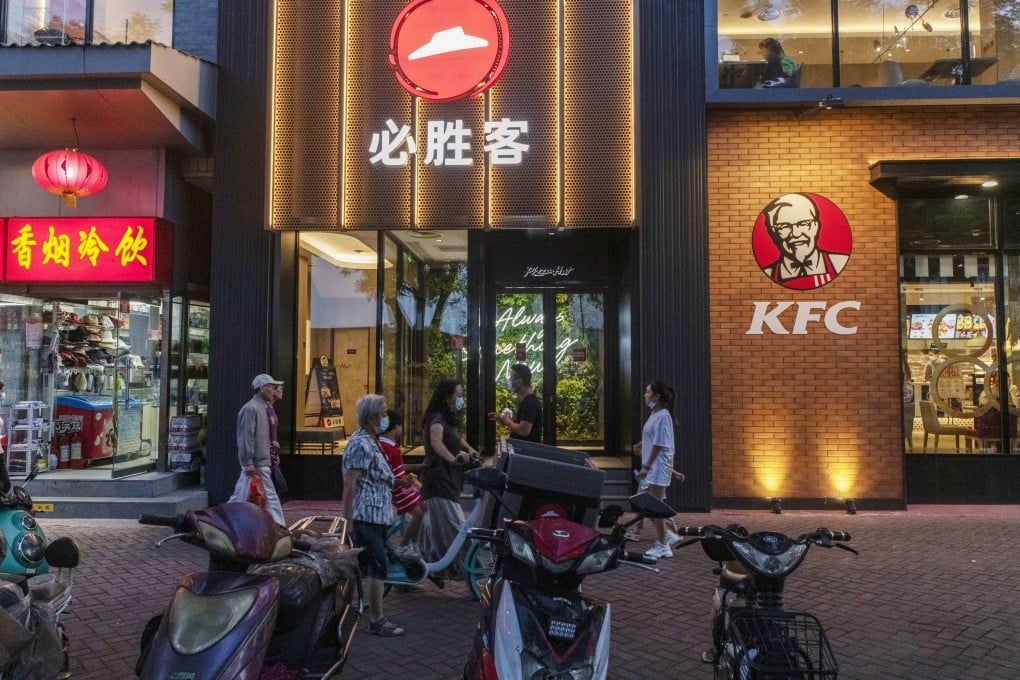KFC, Pizza Hut operator Yum China to open up to 1,300 stores as ‘worst is over’, posts earnings decline for 2022
- ‘We are full of hope and will keep cautiously optimistic,’ CFO Andy Yeung says
- Firm reports 89 per cent year-on-year plunge in net income for the three months ending in December, 55 per cent decline for whole of 2022

“We are full of hope and will keep cautiously optimistic,” he said. “While we have seen some recovery, there are still uncertainties ahead and consumers tend to be careful with their spending.”
The firm reported an 89 per cent year-on-year plunge in net income for the three months ending in December 2022, according to its filing with the Hong Kong stock exchange. Revenue between October and December dropped 9 per cent year on year to US$2.09 billion. Net income for the whole of 2022 was down 55 per cent year on year to US$442 million, while full-year revenue decreased slightly to US$9.57 billion when compared with its 2021 result.
The firm plans to spend US$700 million to US$900 million on expansion this year. Its target for 2023 is slightly higher than the net 1,159 new stores it opened last year.